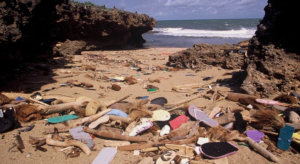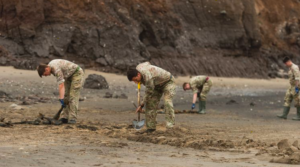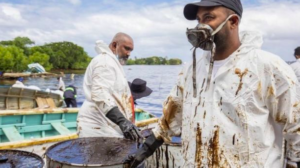Algae-based biodegradable flip-flops offer hope to eradicate plastic waste

As the world’s most popular shoe, flip-flops account for a troubling percentage of plastic waste that ends up in landfills, on seashores and in oceans. Scientists at the University of California San Diego have spent years working to resolve this problem, and now they have taken a step farther toward accomplishing this mission, says Science Daily.
The team of researchers formulated polyurethane foams, made from algae oil, to meet commercial specifications for midsole shoes and the foot-bed of flip-flops. The results of the study are published in Bioresource Technology Reports and describe the team’s successful development of these sustainable, consumer-ready and biodegradable materials.
The research was a collaboration between UC San Diego and startup company Algenesis Materials, a materials science and technology company.
“The paper shows that we have commercial-quality foams that biodegrade in the natural environment,” says Stephen Mayfield (Division of Biological Sciences). “After hundreds of formulations, we finally achieved one that met commercial specifications. These foams are 52 percent biocontent — eventually we’ll get to 100 percent.”
In addition to devising the right formulation for the commercial-quality foams, the researchers worked with Algenesis to not only make the shoes, but to degrade them as well. Mayfield notes that scientists have shown that commercial products like polyesters, bioplastics (PLA) and fossil-fuel plastics (PET) can biodegrade, but only in the context of lab tests or industrial composting.
 “We redeveloped polyurethanes with bio-based monomers from scratch to meet the high material specifications for shoes, while keeping the chemistry suitable, in theory, so the shoes would be able to biodegrade,” Mayfield says.
“We redeveloped polyurethanes with bio-based monomers from scratch to meet the high material specifications for shoes, while keeping the chemistry suitable, in theory, so the shoes would be able to biodegrade,” Mayfield says.
Putting their customised foams to the test by immersing them in traditional compost and soil, the team discovered the materials degraded after just 16 weeks. During the decomposition period, to account for any toxicity, the scientists, led by UC San Diego’s Skip Pomeroy, measured every molecule shed from the biodegradable materials. They also identified the organisms that degraded the foams.
“We took the enzymes from the organisms degrading the foams and showed that we could use them to depolymerise these polyurethane products, and then identified the intermediate steps that take place in the process,” says Mayfield. “We then showed that we could isolate the depolymerised products and use those to synthesise new polyurethane monomers, completing a bioloop.”
This full recyclability of commercial products is the next step in the scientist’s ongoing mission to address the current production and waste management problems posed by plastics which, if not addressed, will result in 96 billion tons of plastic in landfills or the natural environment by 2050.
While commercially on track for production, doing so economically is a matter of scale that the scientists are working out with manufacturing partners says Science Daily.
“People are coming around on plastic ocean pollution and starting to demand products that can address what has become an environmental disaster,” said Tom Cooke, president of Algenesis. “We happen to be at the right place at the right time.”










